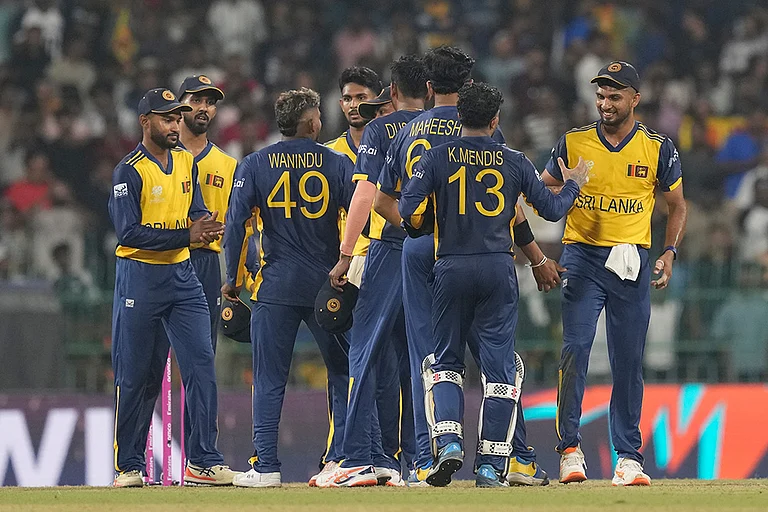IN order to get our perspective on issues of national importance right, we could do well to turn our ears from the din created by vested interests. The unduly vehement questioning of the process of concerned citizens (or “civil society”) engaging in legislative and policy consultations is exactly the sort of noise we must not allow to deflect our attention from the problems of corruption and the framing of an effective Lokpal law to contain it.
At the outset, let me state that I am not joining issue with either the government’s or the Anna Hazare group’s drafts of the Lokpal Bill, having addressed that in a previous column. What I want to do in this piece is to warn of the insidious design behind the attack on citizens’ participation in law- and policy-making that affects their lives, wrong-headedly being projected as an encroachment upon the powers and functions of the legislature and the executive. It’s not for nothing that criticism of the Hazare group’s draft Lokpal Bill has promptly been extended by politicians into a denunciation of what is an encouraging sign of active and truly participatory democracy. Curiously, they are questioning even the role of the National Advisory Council (NAC), established through law by the government itself.
Contrast that attitude with the adulatory acceptance of government outsourcing policy formulation and implementation in vital areas to the corporate sector. When the government encourages a Planning Commission member with a corporate background, Arun Maira, to involve his previous employers, the Boston Consulting Group, in drafting the 12th Five Year Plan, neo-liberal apologists find it praiseworthy. When PricewaterhouseCoopers (PwC) helped formulate the Jawaharlal Nehru Urban Renewal Mission’s agenda of governance reforms in municipalities, no questions were asked. In fact, it won praise. When Chandrababu Naidu got PwC to draw up ‘Vision 20:20’, his government’s policy document, it only attracted widespread praise.
In state after state, the phenomenon of unquestioned acceptance of ‘corporate wisdom’ repeats itself—many a times with disastrous results. Madhya Pradesh and the Chandigarh administration handed over to Hindustan Computers Ltd the task of locating gaps in the PDS. In four years, the firm could look at only four ration shops in Chandigarh. Chhattisgarh, with help from the government’s own National Informatics Centre, completed the inspection of all its ration shops in no more than six months. There’s talk now of Rajasthan wanting to repeat Madhya Pradesh and Chandigarh’s folly: it plans to hire Ernst & Young to develop software for its PDS. Rajasthan has also involved a foundation set up by ICICI Bank in the running of its State Institute of Educational Research & Training, effectively handing over to the corporate sector the vital function of preparing school textbooks. Even the implementation of core programmes is being casually handed over to corporate houses: hundreds of anganwadis in Orissa, for instance, are now being run by Vedanta, a mining company with its eye on the bauxite reserves in the tribal land of the Niyamgiri mountains.
When the NAC proposes draft legislations for vital socio-economic issues such as food security and asserts itself on them, it finds itself being called a busybody with pretentions to law-making. But when Montek Singh Ahluwalia, former international economic bureaucrat and member of the Planning Commission, stalls the NAC’s proposal, he is hailed as a paragon of wisdom and prudence.
So it’s not as if lateral involvement and consultation on policy- and law-making is questioned per se; it’s only the involvement of people deemed uncomfortable to a certain neo-liberal worldview—and let us admit at least the possibility of vested interests being involved here—that finds opposition. The NAC is seen as an albatross around the government’s neck, but not the prime minister’s Economic Advisory Council with its neo-liberal badge. Outsiders from the corporate world—Nandan Nilekani for the UID project and Sam Pitroda for the Knowledge Commission and the National Innovation Council—are welcome. But those whom the powers that be characterise as ‘civil society’, or derisively as jholawalas, are anathema. By the way, the National Innovation Council, although it has different functions, is no different in provenance and legitimacy from the NAC, but you don’t hear any eruptions against what it says or does.
I think it ultimately boils down to a question of political worldviews. The sad part is that a whole apolitical discourse has evolved as a mask for politics of a certain kind. Even Hazare’s team would do well not to protest its political innocence and make claims of being apolitical. As the Hindi poet Muktibodh once asked in anguish, “Partner, tumhari politics kya hai? (What’s your politics, partner?)”


























